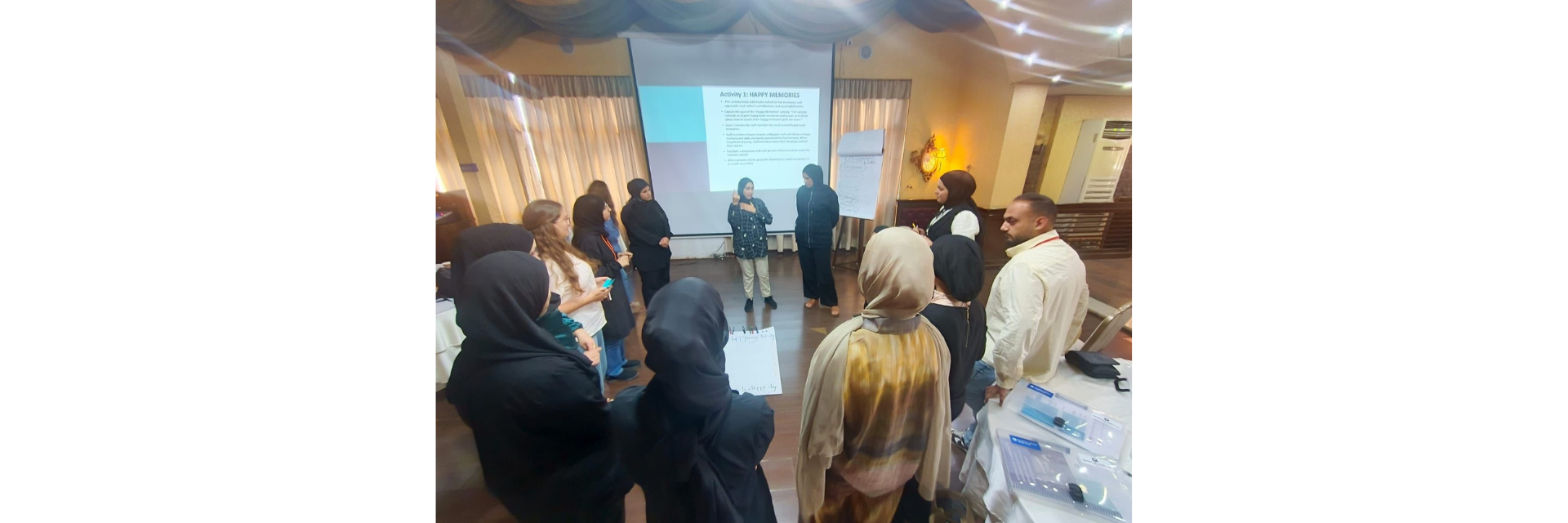
From grief to grace
In Lebanon's southern city of Tyr, Amal's voice rises – clear, strong, purposeful. A grandmother and a widow, Amal is also a survivor. Beneath her black clothes, her shoulders lean forward, not from age alone but from grief, responsibility and the heaviness of loss.
And yet, she speaks loudly, insistently, as if to say: I am still here.
Once displaced by war, she now stands as a pillar of strength and healing in her community. Through her leadership, Amal has become a source of hope for countless women navigating the aftermath of conflict.
Amal's transformation was made possible through psychosocial support and gender-based violence awareness sessions organized by Canadian Lutheran World Relief (CLWR), a member of the Humanitarian Coalition, with support from the Government of Canada. The sessions created a safe space for women to come together, process their trauma and rebuild their sense of self and solidarity.
"I found relief in attending the sessions," Amal says. "They became more than just a place to learn; they became a safe haven. The women I got to know would call me to check if I was safe, to ask how I was feeling, and how they could support me. I wasn't able to answer all the calls, but knowing they were calling... it reminded me that people care about me."
The sessions provided more than comfort. Amal learned psychological first aid, how to communicate through grief, and how to support her grandchildren – who were mourning the loss of their mother – with compassion and understanding.
"I learned how to overcome my fears and rebuild my relationship with my grandchildren," she shares. "I wish schools had sessions like these for children. Our children are not okay. They suffered a lot and they still do."
When the conflict escalated in Lebanon in 2024, Amal's family home in Tyr was struck and destroyed by an airstrike. Eleven members of her family were injured and her daughter-in-law was killed. Across Lebanon, more than 4,000 lives were lost and more than a million people were displaced. Women, who made up more than half of those displaced, have played a pivotal role in providing aid, running shelters, hosting individuals who are displaced and fostering solidarity.
Women like Amal. Women who chose to lead.
Through it all, Amal's voice resonated. Observers noticed how other women would sit a little straighter when she spoke and how they nodded when she told her story.
In Lebanon, women like Amal are not just recovering. They are leading entire communities into rebuilding. Grounded in care, connection, and collective strength, Amal's voice is more than her own, but the voice of countless women who have lost everything and chosen, still, to give.
*Names were changed for security reasons